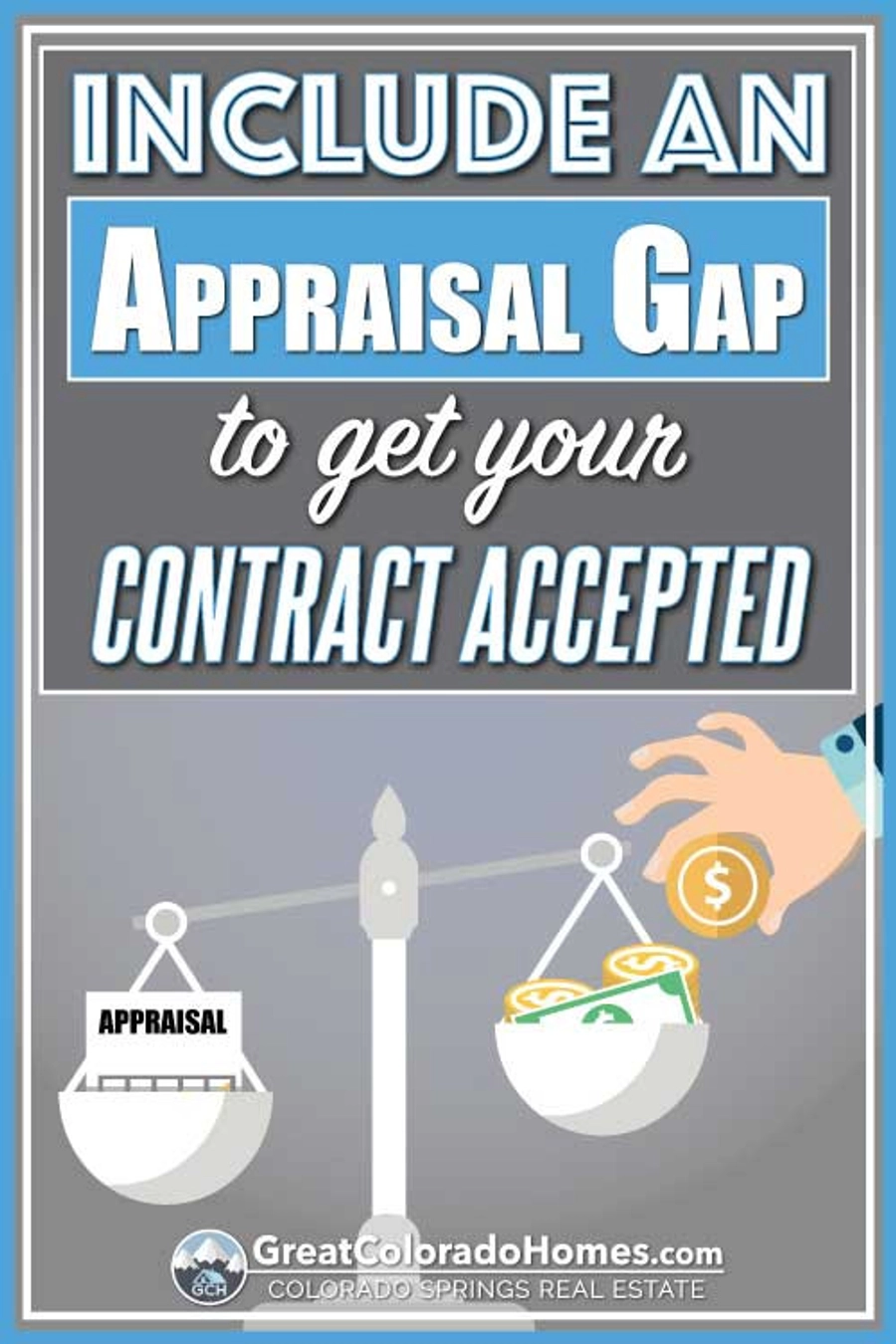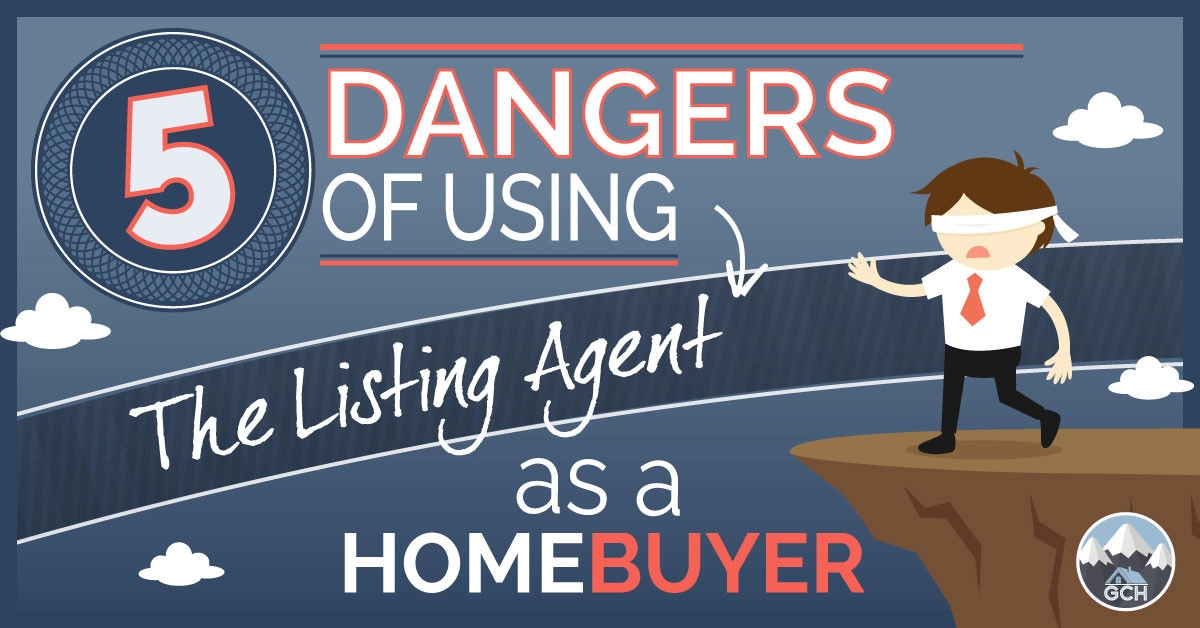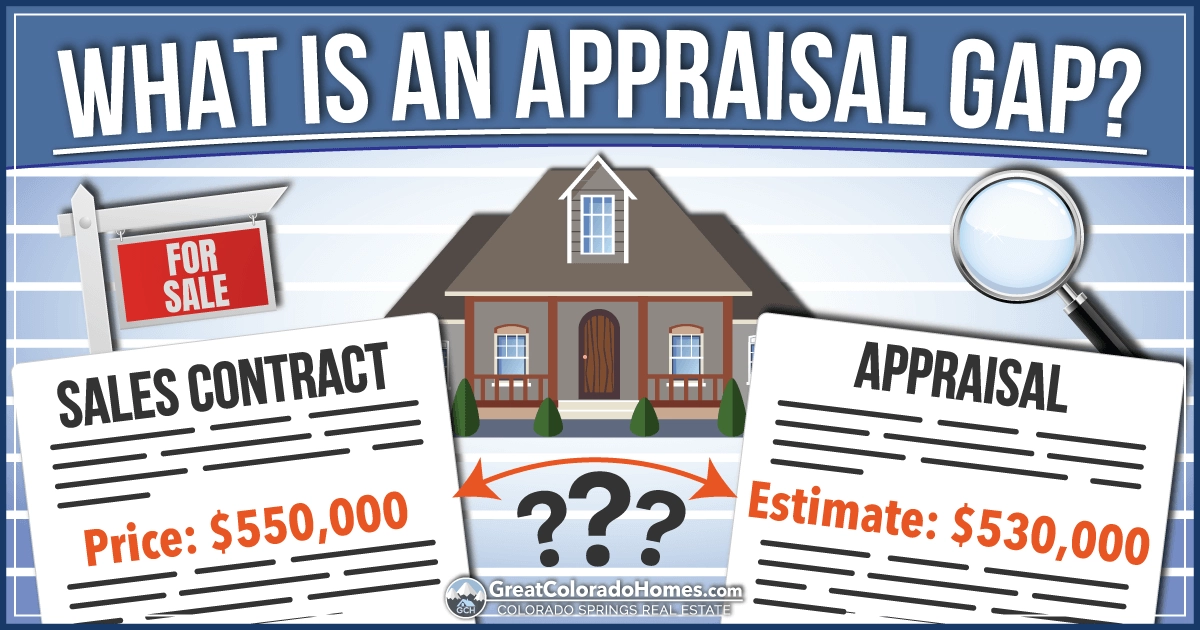Getting your offer accepted in a hot housing market is a big challenge for buyers. When inventory is low and many buyers are looking for homes, you will likely face competition. Real estate agents and buyers need smart strategies to stand out.
As a real estate broker in Colorado Springs, I have seen buyers use all kinds of creative tactics to land their dream home. I have reviewed hundreds of sales contracts and learned what makes an offer strong in a tough market.
Below you will find proven strategies to help your offer stand out when buying a house in a seller’s market. Mix and match these tips with help from your agent to increase your chances of success.
Table of Contents
(Click any section)
1. Offer An Escalation Clause
An escalation clause is a tool that helps buyers win in a bidding war. It lets you offer a price that will rise above any competing offer, up to your set limit. This means you do not have to keep changing your contract if other buyers bid higher. The clause will automatically raise your offer based on what the seller receives from others.

Here is a simple example:
- You want to buy a home listed at $490,000. You offer $500,000 with an escalation clause to outbid the highest offer by $3,000, up to your limit.
- If another buyer offers $550,000, your price would automatically go up to $553,000.
Escalation clauses are popular in hot real estate markets where many buyers compete for the same house.
This method can help you stand out, but only use it if you are comfortable with the highest amount you could pay.
One downside is that sellers or their agents might encourage other buyers to bid more, which could push your final price higher. Also, if the escalation clause is not written clearly, it can cause legal confusion or problems during closing.
Make sure your real estate broker knows how to use escalation clauses. The right guidance helps protect your interests and keeps you competitive without overspending.
2. Offer A Leaseback
A leaseback lets the seller rent the home from the buyer for a short time after closing. This option gives sellers extra time to move and takes away the stress of leaving before everything is final.
In today's real estate market, leasebacks are common and can make your offer stronger. Some buyers may ask for a daily rent or a security deposit as part of the agreement. In a fast-moving market, waiving or lowering these fees can make you stand out to a seller.
If you use a leaseback, make sure your real estate agent includes all the details in your contract. A clear agreement keeps both you and the seller protected. When done right, a leaseback makes the move easier for everyone.
3. Include an Appraisal Gap Clause
An appraisal gap clause is a smart strategy if you want your offer to stand out in a bidding war. Sometimes, homes sell fast and the agreed price is higher than what an appraiser says the home is worth. This low appraisal can cause problems with the sale.

For example, if a home lists for $500,000 but sells for $550,000, the appraiser might only value it at $500,000. This means the buyer has to pay the extra $50,000 out of pocket, or the seller may need to lower the price. If neither side agrees, the deal can fall through.
With an appraisal gap clause, buyers promise to cover the difference between the appraised value and the contract price. You need to have the extra cash ready. This gives sellers confidence that the sale will go through, even if the appraisal is lower than the agreed price.
Sellers should always ask to see proof that buyers have the funds to cover the gap. Some buyers make this promise but do not actually have the money, which can cause problems later.
If you are a buyer, be sure you understand what an appraisal gap means. You may end up paying above market value, so make sure you are comfortable with this risk. If you have questions, talk with your real estate agent. They can explain the process and help you avoid mistakes.
4. Offer More Earnest Money
Earnest money is a deposit you give with your offer to show you are serious about buying the house. Most sellers expect one percent to two percent of the purchase price as earnest money, but the amount can vary by location.
This deposit helps prove your intent and gives the seller confidence to take their home off the market. If the sale falls through for reasons like a failed inspection or loan problem, earnest money is usually returned if you have the right contract contingencies in place. You can learn more about how these work here.
Offering more than the minimum earnest money can help your offer stand out from others. Some buyers also make the earnest money “go hard,” which means you agree to give up your refund rights and keep the deposit with the seller even if the sale does not close. This is a bold move that shows the seller you really want the house, but it is only recommended when you are certain about your purchase.
5. Use a Reputable Local Mortgage Lender
Picking the right mortgage lender is a huge step in buying a home. Local lenders often have stronger reputations with real estate agents and sellers. A trusted local lender can help make your offer stand out and move the process along more smoothly.
Listing agents check the lender and pre-approval letter on every offer. If your lender is known for missing deadlines or causing issues, it could hurt your chances. In smaller towns, word travels fast and agents remember which lenders are easy to work with.
Ask your Realtor who they recommend for a local mortgage lender. A well-known and respected lender can make your home buying experience easier and may even help your offer get accepted.
6. Offer to Pay the Sellers' Moving Expenses
A creative way to make your offer more appealing to home sellers is to pay for their moving expenses. This idea is not common, so it often gets a seller’s attention.
Instead of raising your purchase price, offer a set amount to help with moving costs. This gives sellers extra money without increasing the sales price on paper. By doing this, you avoid appraisal problems and keep the process simple for both sides. In today’s market, a smart and flexible offer can make all the difference. Learn more about home buying strategies in our mortgage process guide.
7. No Personal Letters
 In the past, buyers were told to write a personal letter to the seller to stand out. You may still read this advice online, but times have changed. Real estate professionals now avoid these letters because they can break fair housing laws.
In the past, buyers were told to write a personal letter to the seller to stand out. You may still read this advice online, but times have changed. Real estate professionals now avoid these letters because they can break fair housing laws.
Including a letter with details about yourself or your family can lead to legal issues. Some buyers have claimed their offer was rejected for unfair reasons such as race or family status. To keep things fair, the National Association of Realtors says agents should not share these letters at all.
Focus on presenting a strong offer that meets the seller's needs and leave out any personal notes. This keeps your offer fair and avoids problems for everyone involved.
8. Close on Their Terms
Every home seller has their own reasons for moving. One might be working with a relocation company. Another might be selling an investment. Each seller wants something specific, like a quick closing, extra time before moving out, or certain contract terms.
Before you make an offer, have your Realtor speak with the listing agent. Ask what matters most to the seller in this deal. With this information, you can adjust your offer to better fit the seller's wishes. When you match your offer to what the seller values, you have a better chance of standing out—even if your price is similar to others.
9. Be the First to View and Submit an Offer
In a seller's market, being quick can help you win the house you want. Many sellers like to keep things simple and will often choose buyers who act fast and send in strong offers right away.
To be first in line, set up instant alerts for new listings with your Realtor. As soon as a new home pops up that fits your search, contact your agent and see it as soon as possible. This gives you a better shot at making an offer before anyone else.
Since you usually will not meet the seller directly, focus on making your offer clean and clear. Your Realtor will guide you through what to include, so your offer stands out.
10. Offer to Pay All Title Insurance Fees
In many states, sellers usually cover the cost of title insurance for the buyer. Title insurance protects you from issues with property ownership that could come up later.
To make your offer stronger, try offering to pay all the title insurance fees yourself. These fees can cost between five hundred and fifteen hundred dollars, depending on your location. Choosing to pay these costs can help your offer stand out, especially in a seller's market. Many buyers now do this to win homes when demand is high.
Talk to your real estate agent about title fees in your area. With the right approach, covering these costs could be the key to landing your new home.
11. Waive the Inspection Contingency
 After your offer is accepted, the next big step is a home inspection. This inspection helps uncover problems in the house that you may not notice during a showing. It can be a stressful time for sellers because they cannot predict what an inspector might find.
After your offer is accepted, the next big step is a home inspection. This inspection helps uncover problems in the house that you may not notice during a showing. It can be a stressful time for sellers because they cannot predict what an inspector might find.
Some buyers consider waiving the inspection to make their offer more attractive. This may help you stand out in a hot real estate market. However, waiving your inspection is risky. You could miss serious repairs or costly issues that are not easy to spot.
Always talk to your Realtor before waiving any inspection. This decision needs careful thought, and an experienced real estate expert can help you weigh the risks based on the condition and age of the home. For many buyers, a thorough inspection offers vital peace of mind before closing the deal.
12. Remove the Financing Contingency
When you agree to buy a home, you usually pay earnest money to show you are serious. If your loan does not work out by the deadline in your contract, you can get this money back and the seller has to start looking for a new buyer. This is stressful for sellers because they lose both time and potential buyers.
To help your offer stand out, you can decide to remove your financing contingency. This means if your financing falls through, the seller keeps your earnest money. Removing this safety net can make your offer stronger and more appealing to sellers, especially in a hot housing market.
Always talk with your real estate agent before making this choice. Waiving the financing contingency adds risk for buyers, so be sure you are fully approved and have a secure loan before moving forward with this step.
13. Larger Downpayment
A bigger down payment can help you get the home you want. Sellers see a larger down payment as proof that you have strong finances. Buyers who offer more cash are less likely to face problems if the home appraisal is low or if repairs pop up during the sale.
Try to save up enough to increase your down payment if you can. This can make your offer much more attractive to sellers. If you plan to use a VA loan, show the seller you have extra funds ready in case you need them. Sellers often pick buyers who can cover more costs and are more likely to reach the closing table on time.
14. Have Your Lender Pre-Underwrite Your Loan

The mortgage process can sometimes delay or stop a home sale. Surprises in a buyer’s finances are often found later, which can worry sellers and real estate agents and put your deal at risk.
Pre-underwriting your loan removes much of this worry. Ask your lender to review all your finances early and fully approve your loan amount before you make an offer. This step shows sellers and agents that you are serious, qualified, and ready to close on time.
Work with a trusted local lender who knows your market. Pre-underwriting helps your offer stand out, especially in a competitive real estate market. This is a smart strategy that more buyers are using to get their offers accepted.
15. Use an Experienced Realtor
Working with the right real estate agent makes a huge difference when buying a home. In Colorado Springs, there are thousands of Realtors, but not every agent has the experience you need in a busy or changing market.
An experienced Realtor knows how to find the best homes, spot hidden problems, and guide you through every step. They close deals often, stay up to date on local housing trends, and may know about houses not showing up online.
If you pick an agent who is active and skilled, you are more likely to find great houses faster and avoid common problems. The agent you choose directly shapes your success in buying a home. Always check their recent work and market knowledge before you decide.
16. Keep your Offer Clean and Simple
When you make an offer on a house, keep it clear and easy for the seller to read. The best contracts are short and to the point. Too many extra words or complicated terms can make your offer less appealing.
Sellers and their agents want to see that you are serious and easy to work with. If your offer is full of long notes or includes details that are not needed, it can make things harder for everyone. Clean contracts give fewer chances for mistakes and help your offer stand out.
Only add extra details to your contract if they are important and will help you secure the home. Focus on the main terms: the price, the closing date, and any key conditions. This simple approach shows that you and your agent know what matters and are ready for a smooth sale.
As an experienced Realtor, I have learned that clear offers are the most successful. If you are unsure, ask your agent to double-check your contract before you send it to the seller.
17. Position Yourself to be Flexible
Flexibility gives you an advantage in a tough seller's real estate market. Each home seller has different needs. If you can move quickly or adjust your timeline, you are more likely to stand out from other buyers.
Selling your current home before buying a new one can be tricky, especially when sellers want fast and simple deals. Most sellers do not want to wait for another home sale to be finished first. To make your offer stronger, think about selling your home early and renting a short-term rental until you find the right new place.
Some companies now offer to buy your home for cash so you can buy another house right away, sometimes for a fee. Lenders and real estate agents are using smart solutions as the market gets more competitive. Research services in your area that can help with buying before you sell.
18. Close Extra Fast on Vacant Homes
If you find a house that is empty, the seller usually wants to sell it fast. Vacant homes can be costly for owners to keep up, so a fast closing often works in your favor.
To move quickly, get pre-approved for your mortgage and choose a lender that can close fast. Share your timeline with everyone involved in the sale. Ask your lender about pre-underwriting your loan, which helps speed things up even more.
Buying a vacant home does not have to take long. By being ready and working with a fast lender, you can save time and even stand out to the seller.
Key Takeaways for Homebuyers in a Competitive Market
Buying a home today can mean facing lots of competition and some stress when your offer does not win. Each offer is a new chance to use smart negotiation strategies that can give you an edge over other buyers.
You can pick and combine different negotiation tactics to fit each situation. Share these ideas with your Realtor to boost your chances on your next purchase offer.
Keep a positive attitude and use every offer as practice. With patience and the right approach, you will find the right home and get your contract accepted.

.png)













